Fritextsökning
Artiklar per år
Innehållstyper
-

Missnöjd med din julklappsslips? Här är våra läsetips
-

Höstens mest lästa krönikor
Här nedan läser du de mest lästa krönikorna i Life Science Sweden och systertidningen Medtech Magazine från hösten och vintern.
-

Jacob Lund blir global presschef för Astra Zeneca
Astrazeneca flyttar upp Jacob Lund till rollen som global presschef. Han är idag bolagets kommunikationsdirektör i Norden.
-

Astra Zeneca nådde inte mål i lungcancerstudie
-

SDS Life Science växer – tillsätter ny regionchef
SDS Life Science expanderar i Uppsala. Nu skapar koncernen en ny tjänst – där Christina Erixon kliver in som regionchef.
-

ALS – When the body has given up, but the brain persists
The nerve disease ALS gradually deprives the patient of control over the muscles and, eventually, also of speech. The eyes continue to function, though, and with the help of, among other things, a Swedish-developed invention, communication with the outside world can continue. “It’s their window to the world,” says ALS researcher Caroline Ingre.
-

“Photon counting in computed tomography is the holy grail”
Erik Fredenberg, a researcher in physics at KTH and GE, is working to implement photon-counting CT in clinics. To shorten lead times and reduce the radiation dose in patients, he is setting out to develop a framework for virtual clinical trials for the technology.
-

Great Swedish innovations: Eye treatment became a feather in Pharmacia’s cap
From complicated and sometimes risky surgery to a routine procedure. Pharmacia’s injectable Healon revolutionised the field of eye surgery - and is considered by us one of the most important contemporary Swedish innovations in the field of medicine.
-

New study: Post-Covid symptoms are common even after mild Covid-19
According to researchers at the University of Gothenburg, loss of smell and taste, shortness of breath and chest symptoms are the most common complaints after a mild Covid infection.
-

She creates pharmaceuticals on a 3D printer
The correct dosage for each individual, regardless of whether the pharmaceutical is for a seriously ill child or a frail elderly person, is the mission of a well-advanced project with 3D-printed drugs at Uppsala University. “It will soon be available in clinics”, says Christel Bergström, who is heading the project.
-

Astra Zeneca köper immunterapibolaget Neogene i miljardaffär
Affären väntas slutföras i början av nästa år och har en prislapp om 320 miljoner dollar, motsvarande 3,37 miljarder kronor.
-
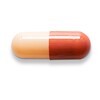
The stomach medication that became the biggest blockbuster of the 1990s
The omeprazole molecule was synthesised as early as 1979, but it took many years before the then Astra had an approved pharmaceutical. Once this happened, a tablet was available that was soon to help millions of people worldwide and break all sales
-

The most important Swedish medical innovations: Our ranking
Life Science Sweden turns 20 years old – and celebrates by producing a top list of the 20 most important contemporary Swedish innovations in the field of medicine.
-
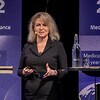
“We are Europe’s hotspot in life science”
The Medicon Valley Alliance has worked for competence development in life science in Denmark and Sweden for a quarter of a century. Anette Steenberg, CEO, sees the anniversary as a recognition of MVA’s explosive power.
-

”Magsårsmedicinen” viktigare än många tror
”Trots att det finns många andra oerhört viktiga medicinska innovationer var valet självklart när vi gick igenom nomineringarna”, skriver Life Science Swedens chefredaktör Samuel Lagercrantz i en ledare där han kommenterar tidningens rankning av moderna svenska medicininnovationer.
-
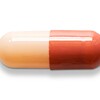
Magmedicinen som blev 90-talets största blockbuster
Redan 1979 syntetiserades omeprazolmolekylen. Men det kom att dröja många år innan dåvarande Astra hade ett godkänt läkemedel. När det väl skedde fanns en tablett som kom att hjälpa miljontals människor i världen – och slå alla försäljningsrekord.
-

Här är hela listan – De viktigaste svenska medicininnovationerna
Högst upp på Life Science Swedens rankning över moderna svenska innovationer inom medicinområdet finns Losec från dåvarande Astra.
-
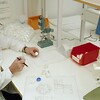
Topplista innovationer: Turbuhalern tar läkemedlen till luftvägarna
Efter 100-tals försök kunde Kjell Wetterlin och hans medarbetare på Draco ge sin uppfinning en unik egenskap som kom att göra den till en av de största succéerna inom svensk medicinsk innovation – till gagn för miljontals patienter. Turbohalern återfinns på Life Science Swedens lista över de viktigaste svenska medicinska innovationerna på plats ...
-

Astra Zeneca i topp när naturvetare inom life science ska välja arbetsgivare
Fast anställning, varierande arbetsuppgifter och flexibla arbetstider är vad naturvetare inom life science helst vill erbjudas av sina arbetsgivare. Och flest tror att de hittar detta hos Astra Zeneca, enligt en undersökning bland Naturvetarnas medlemmar.
-

He is zooming in on topical preparations
According to Zelmic CEO David Sagna, topical products in drug development is a growing market, and to keep pace with the development, the company is awaiting approval for its new GMP facility.
-

Medicinjättar högt på topplista när Sveriges bästa arbetsplatser rankas
Att jobba inom medtech eller life science kan innebära att man har Sveriges bästa arbetsgivare. Det enligt en ny lista där medarbetarna själva fått tycka till.
-
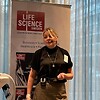
Swedish breakthrough in Alzheimer’s: “We can finally present great data”
Treatments for Alzheimer’s disease are currently among the hottest topics in drug development. Two Swedish research companies with high ambitions and successes in the field participated in Bioscience 2022 conference at Life City in Hagastaden, Stockholm.
-

Neanderthal genes and Nobel Prize in a popular lecture at Bioscience
An inherited gene variant from our ”evolutionary cousins” – the extinct Neanderthals – may affect how our bodies break down certain drugs. “It’s only a matter of time before we actively start screening for it,” said KI researcher Hugo Zeberg when describing the study at Bioscience 2022.
-

"Are we doing business the wrong way around in the Life Science Sector?"
For the past 50 years we have created solutions for problems that we thought would solve the problems. Pharmaceuticals have created big block buster drugs which were great for that time but now we realise that these drugs were in fact only tested in white men and certainly not for patients who are older who are taking a number of medications.